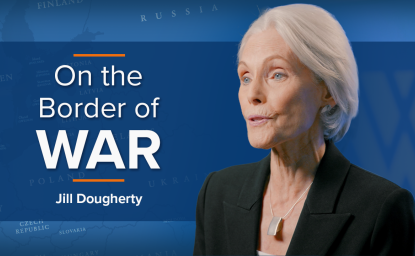WASHINGTON— Jane Harman, Director, President and CEO of the Wilson Center, announced the members of the 2015-2016 fellowship class today. The 19 fellows include scholars and practitioners from the United States, Australia, China, Egypt, France, Germany, Mexico, Morocco, Russia, and the United Kingdom.
“The Wilson fellows are the core of the independent, impactful scholarship the Wilson Center is known for,” said Harman. “Members of the 2015-2016 class come from all over the world to conduct deep research that will inform smarter public policy.
The 2015-2016 fellows are listed below along with the projects they will pursue while in residence at the Wilson Center.
Margarita Balmaceda, Professor, School of Diplomacy and International Relations, Seton Hall University. “Chains of Value, Chains of Power: Russian Energy, Value Chains and the Remaking of Social Relations from Vladivostok to Brussels.”
Thomas Berger, Associate Professor of International Affairs, Frederick S. Pardee School of Global Studies, Boston University. “A Sea of Troubles: US Grand Strategy in East Asia and Japan’s Disputes over History and Territory.”
Kent Eaton, Professor of Politics, University of California, Santa Cruz. “Right Reactions to the Left Turn in Latin America.”
Michelle Egan, Professor and Jean Monnet Chair ad personam, School of International Service, American University. “TTIP as Transatlantic Pivot: Strategic and Domestic Sources of Legitimacy, Credibility, and Compliance.”
Renaud Egreteau, Research Associate, Sciences Po's Center for International Studies (CERI), Paris, France. “Legislatures and Political Change: The Case of Myanmar (Burma): A Study in the Resurgence of Parliament and its Role in Democratization in a Post-junta Era (2010-2015).”
Igor Fedyukin, Associate Professor of History, Higher School of Economics, Moscow, Russia. “Technocrats and the ‘Vertical of Power’: Reforming Education and Science in Russia.”
Farhat Haq, Professor of Political Science, Monmouth College. “Sacralizing the State: Islam and Democracy in Pakistan.”
Jamie Horsley, Executive Director, China Law Center, and Senior Research Scholar, Yale Law School. “Rule of Law and Open Governance Reforms in China: Implications for China, U.S.-China Relations and International Relations.”
Adrienne LeBas, Assistant Professor of Political Science, American University. “The Organizational Roots of Persistent Electoral Violence in Africa.”
Kristie Macrakis, Professor of History of Science, Georgia Institute of Technology. “Technology and the Rise of the U.S. Global Security State: How Can History Inform Policy?”
Abdel-Fattah Mady, Associate Professor of Political Science, Alexandria University, Egypt. “Arab Spring: Challenges and Aspirations.”
Dinny McMahon, Banking and Finance Correspondent, Beijing, The Wall Street Journal. “Cracks in the Façade: The Mounting Risk and Complexity of China’s Financial System.”
Daniel Neep, Assistant Professor, Center for Contemporary Arab Studies, Georgetown University. “The Nation Belongs to All: the Making of Modern Syria.”
Viridiana Rios, CEO of México ¿Cómo Vamos?; Former Advisor, Ministry of Finance, Mexico. “Economic Policy for Crime Deterrence in Mexico.”
Elisabeth Roehrlich, Project Director and Senior Fellow at the Department of Contemporary History, University of Vienna, Austria. “Global Nuclear Governance: Perspectives from the pre-NPT History of the IAEA.”
Fatima Sadiqi, Senior Professor of Linguistics and Gender Studies, Sidi Mohamed Ben Abdellah University, Morocco. “Jihadism and the Escalation of Violence Against Women and Girls: Towards a Formulation of Policies Combating Gender-based Violence in the Middle East and North Africa (MENA) Region.”
Elizabeth F. Thompson, Professor of History, University of Virginia. “After Lawrence: Woodrow Wilson and the Brief Promise of Arab Liberalism.”
Yue Zhang, Associate Professor of Political Science, University of Illinois - Chicago. “Informal Urbanization: The Making and Governance of Megacities in China, India, and Brazil.”
Vladislav Zubok, Professor of International History, London School of Economics. “1991, Russia Destroys the Soviet Union.”
Media with questions should contact Drew Sample at drew.sample@wilsoncenter.org or by phone at (202) 691-4379.
Notes to Editors
1.The Wilson Center provides a strictly nonpartisan space for the worlds of policymaking and scholarship to interact. By conducting relevant and timely research and promoting dialogue from all perspectives, it works to address the critical current and emerging challenges confronting the United States and the world.


